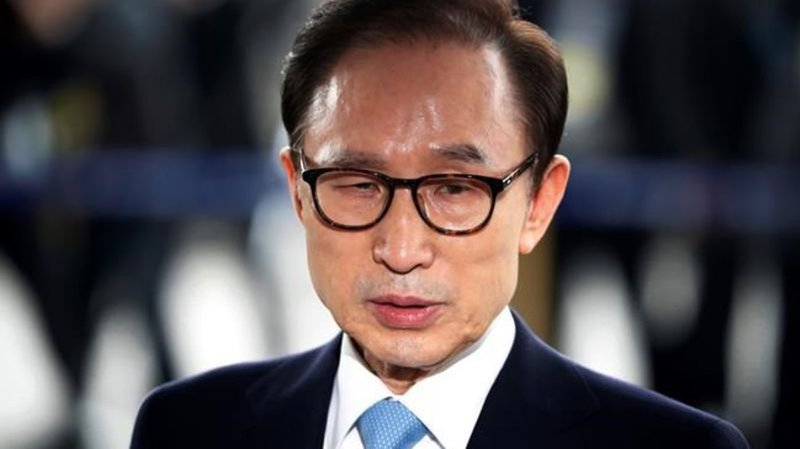
S. Korea’s top court upholds 17-year jail term on ex-leader
SEOUL, Korea, Republic Of — South Korea’s top court upheld a 17-year sentence imposed on former President Lee Myung-bak for a range of corruption crimes in a final ruling Thursday that will send him back to prison.
Lee has been convicted of taking bribes worth millions of dollars from big companies including Samsung, embezzling corporate funds of a company that he owned and misusing official funds of South Korea’s spy agency. The crimes occurred before and during his 2008-13 presidency.
The Supreme Court also confirmed a lower court ruling that ordered Lee to pay 13 billion won ($10.9 million) in fines and forfeit another 5.78 billion won ($4.6 million) for his crimes, court officials said. Thursday’s ruling is final and cannot be appealed.
Lee was initially sentenced to 15 years in prison in 2018. He was bailed out of jail several months later but was taken back into custody in February this year, after an appellate court handed down a 17-year term and cancelled his bail. He was released again six days later after he appealed that ruling on his bail cancellation.
